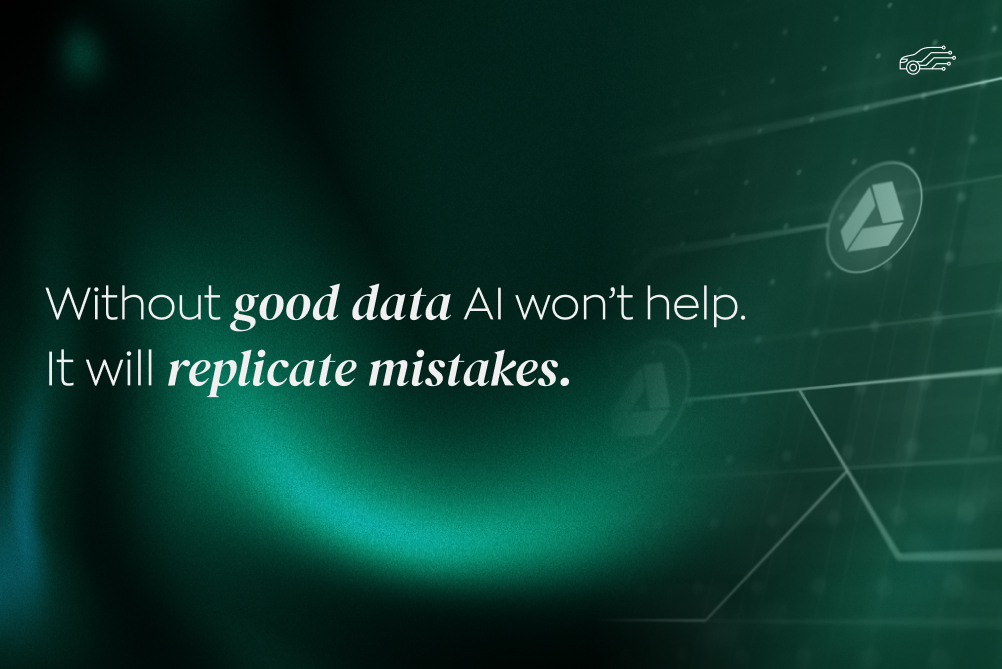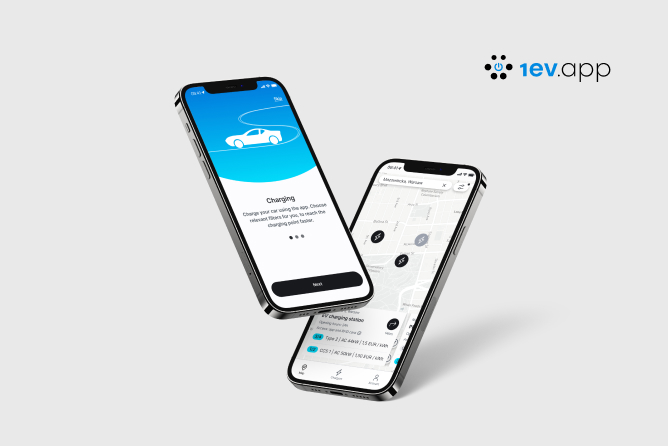Introduction
Two remarkable innovations stand out in the ever-evolving tech landscape—Artificial Intelligence (AI) and Big Data. These dynamic tools are rewriting software engineering rules, pushing boundaries, and driving unprecedented growth.
This synergy of AI and Big Data in software engineering is not just a fleeting tech trend; it's a powerful duo revolutionizing how we develop and interact with modern technological solutions.
In this post, we'll explore this exciting intersection, shedding light on how the coupling of AI and Big Data is fueling innovation efficiency and transforming the software engineering paradigm.
The symbiosis between AI and Big Data
In modern software engineering, Big Data and Artificial Intelligence (AI) are interdependent, fueling each other's functionalities. The magnitude of data generated daily offers AI systems a rich playground to learn, adapt, and make predictions.
With its machine learning capabilities, AI can sift through this vast amount of data, extracting meaningful insights and identifying patterns that are nearly impossible for humans to discern manually.
This synergy paves the way for innovative solutions and greater efficiency in software engineering. For instance, AI algorithms trained on large datasets can predict system faults and software failures, enhancing software development quality.
AI-powered analytics can help businesses make data-driven decisions, enabling quick responses to market changes. The symbiosis between AI and Big Data drives the evolution of software engineering.
Role of AI in Big Data analytics
AI plays a vital role in Big Data analytics by providing tools to handle, analyze, and interpret massive data volumes beyond human capacity. Machine learning, a crucial part of AI, processes and makes sense of Big Data.
AI algorithms learn from data, identify patterns, and make predictions—cornerstones of Big Data analytics. With AI-powered tools, businesses automate data analysis, making it faster, more accurate, and efficient. Predictive analytics, enabled by AI, predicts outcomes based on historical data, benefiting healthcare, banking, and retail.
Deep learning, a subset of machine learning, analyzes complex datasets and makes decisions with minimal human intervention. Deep learning is used in natural language processing (NLP) for sentiment analysis and is valuable in customer service and marketing.
The convergence of AI and Big Data offers tremendous software engineering potential, transforming how we manage data, make predictions, and provide innovative solutions, thus shaping a future where technology is intrinsically data-driven and intelligent.
Big Data: fueling AI innovations
Big Data fuels AI innovations and training algorithms effectively. It's crucial in software engineering, recognizing patterns, predicting outcomes, and automating processes.
Big Data influences predictive maintenance, customer segmentation, personalization, and fraud detection. For instance, they predict faults and failures in maintenance and create customer profiles for personalized experiences.
In essence, Big Data empowers AI to evolve and innovate, driving technological advancement in software engineering. This synergy reshapes industries where data-driven solutions are intelligent.
Application of AI and Big Data in software engineering
Artificial Intelligence (AI) and Big Data are revolutionizing the field of Software Engineering, offering new possibilities and opportunities. In this section, we will explore how AI and Big Data are being applied in Software Engineering.
The future of software engineering with AI and Big Data
The combination of AI and Big Data is revolutionizing software engineering. These technologies streamline development and automate code generation, bug detection, and software testing. They enable predictive analytics, aiding issue anticipation, task prioritization, and data-driven decisions.
In terms of operations, AI and Big Data transform maintenance and support. Proactive maintenance is possible through AI's analysis of massive datasets, predicting anomalies and failures. Personalized software features enhance user experience based on data analysis.
The integration of AI and Big Data fosters innovation. These technologies, from AI-driven virtual assistants to data-intensive IoT applications, create intelligent, scalable, and adaptable solutions.
In summary, AI and Big Data redefine software engineering, making solutions intelligent, agile, and data-driven.

Case studies: AI and Big Data in action
Real-world applications of AI and Big Data in software engineering can be found all around us in this digital age.
These examples illustrate the transformative impact of these technologies in diverse industries, providing insights into their practical integration and the remarkable benefits they yield.
Case study 1: Netflix's recommendation engine
Netflix, a global leader in the streaming video industry, is a shining example of effective AI and Big Data applications in software engineering.
The company's recommendation engine, which suggests shows and movies to viewers, leverages machine learning algorithms trained on vast troves of Big Data.
By analyzing millions of data points, including users' viewing habits, ratings, and trends, the AI can forecast what content a specific user might enjoy, delivering a personalized viewing experience.
Thanks to this synergy between AI and Big Data, Netflix significantly increases customer engagement and retention, contributing to its global success.
Case study 2: Amazon's predictive shopping
Amazon's predictive shopping model is another prime example of AI and Big Data in action. Amazon's systems harness the power of AI and Big Data to analyze millions of users' shopping patterns, browsing history, and customer preferences.
This information allows Amazon's AI algorithms to predict what a customer might want to purchase next, even before they know it themselves. Based on these predictions, Amazon tailors product recommendations for each user, creating a highly personalized shopping experience.
This innovative use of AI and Big Data enhances customer satisfaction and drives significant increases in sales and revenue for the online retail giant. The success of Amazon's predictive shopping model underlines the transformative potential of AI and Big Data in software engineering.
Challenges in integrating AI and Big Data in software engineering
Despite the numerous benefits offered by the integration of AI and Big Data in software engineering, there are several obstacles that companies must overcome to harness these technologies effectively.
Data quality and management
The first challenge lies in data quality and management. AI algorithms rely on high-quality data to generate reliable insights. Poor quality data, therefore, can lead to inaccurate results, affecting the overall performance of the software. Additionally, managing vast amounts of data can be daunting, requiring robust data management systems and strategies.
Data privacy and security
Data privacy and security is another significant concern. Companies must adhere to all data protection regulations and implement robust security measures to protect the data from breaches. This task is increasingly challenging given the sheer volume of data processed and the sophisticated nature of cyber threats.
Lack of skilled personnel
The need for more skilled personnel is another challenge. Integrating AI and Big Data in software engineering requires a workforce with specialized skills in these areas. However, a notable skills gap in this area makes it difficult for companies to find the talent they need.
Complexity of AI systems
Finally, the complexity of AI systems can also be a hurdle. Designing, implementing, and maintaining AI systems is a complex process that requires time, resources, and deep technical expertise.
Despite these challenges, the potential benefits of integrating AI and Big Data in software engineering are immense. With the right approach and strategies, companies can overcome these obstacles and unlock the transformative power of these technologies.
Overcoming the challenges: strategies and best practices
Overcoming the challenges associated with the integration of AI and Big Data in software engineering requires thoughtful strategies and best practices. Here are a few critical ones:
Invest in data quality management: Ensuring the quality of data is paramount. Organizations need to invest in robust data management systems, perform regular data audits, and employ data cleansing techniques to maintain high-quality data. Establishing standardized processes and procedures for data collection and management could also mitigate the risks of poor-quality data.
Adopt robust security measures: To tackle concerns around data privacy and security, organizations should implement rigorous security measures and protocols. This includes encryption of sensitive data, regular security audits, and maintaining a robust incident response strategy. It is also essential to stay updated with the latest data protection regulations and to ensure compliance.
Bridge the skills gap: Hands-on training and continuous education are crucial to overcoming the shortage of skilled personnel. Companies should invest in training programs to equip their workforce with the necessary skills. Collaboration with universities and other educational institutions to nurture talent from an early stage could also be beneficial.
Leverage expertise: To manage the complexity of AI systems, organizations should partner with experts or consulting firms with a proven track record. This approach provides access to deep technical expertise for effective design, implementation, and maintenance of AI systems, allowing your company to focus on its core competencies.
By exploring the application, potential, challenges, and strategies of AI and Big Data in Software Engineering, this section aims to provide a comprehensive understanding of this exciting and rapidly evolving field.
Conclusion
The synergistic combination of AI and Big Data is reshaping the landscape of modern software engineering, driving innovative breakthroughs and enhancing efficiency. The power of AI to process and analyze vast amounts of data, coupled with the valuable insights offered by Big Data, creates an incredible resource for organizations seeking to unlock new opportunities and improve existing processes.







.png)




.jpg)
.jpg)


.jpg)
.jpg)



.jpg)
.jpg)
.jpg)
.jpg)
.jpg)
.jpg)

.jpg)
.jpg)
.jpg)
.jpg)
.jpg)
.jpg)
.jpg)
.jpg)
.jpg)
.jpg)






.jpg)
.jpg)
.jpg)

.jpg)

.jpg)


.jpg)
.jpg)

.jpg)
.jpg)

.jpg)

.jpg)
.jpg)
.jpg)

.jpg)
.webp)

.webp)


.jpg)









.webp)


.webp)






















